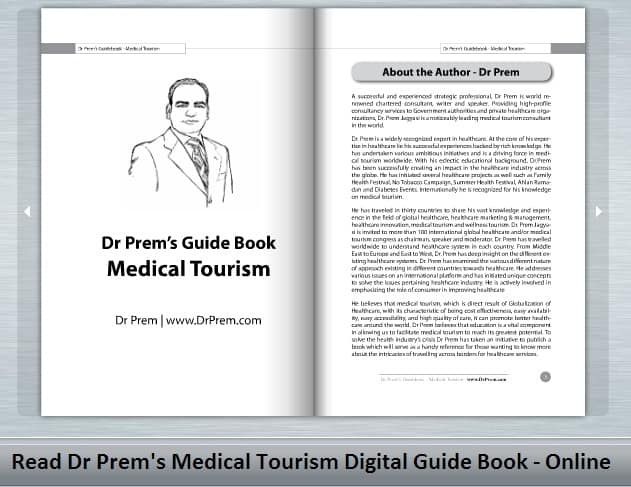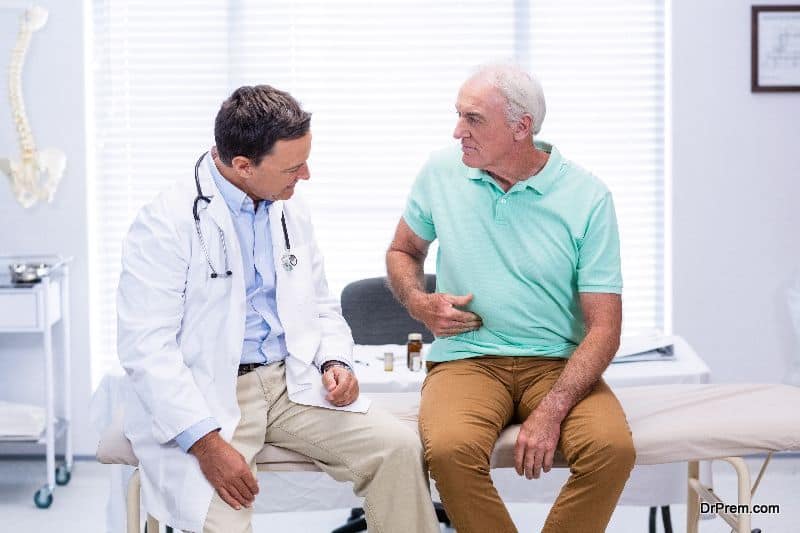These are some crucial questions that you as a patient should consider and ask yourself before you actually take the medical tourism related decision. It pays to be well informed.
Making your mind up for medical tourism: Questions to ask yourself
-
How do you feel about traveling abroad?
-
Do you enjoy interacting with different language and culture groups?
-
Can you trust a foreign facility or provider?
-
Do you have all the means ready for the medical travel?
-
Have you taken a second opinion?
-
Does your home country offer the post-operative care you might require?
How do you feel about traveling abroad?
If you are not an avid traveler, have not boarded a plane so far either, and have an innate fear of flying, traveling overseas for a medical procedure or a surgery may not be a good decision for you. It will only add more stress to your already beleaguered health condition to complicate things further.
Try to get and exploit the best deal available within your home country to avoid traveling overseas. However, if you find nothing affordable and good enough to suit your medical requirements, try finding the closest destination to your home country that fits your parameters of affordability and accessibility.
If you are going for long distance air travel for the first time, you should know about Jetlag. When you travel over multiple time zones, the contradictory time zones might leave you feeling fatigued. You should not only know about this, but should also be able to handle it.
Do you enjoy interacting with different language and culture groups?
In order to be a potential medical tourist, you should not necessarily be a jovial person or the one who loves interacting with people and traveling different countries. However, you should be at ease to interact with people. During your medical trip, you are supposed to interact with people from different cultural, religious and racial backgrounds.
Even when you travel to a country where people speak your language, you should do your utmost to understand their cultural, racial or religious background. For example, if you are traveling from US to Australia, UK, etc., the language might be the same but the culture can differ considerably.
This skill is extremely important when it comes to communicate with the healthcare professionals at a facility who do not understand and communicate in your native language. English is widely spoken throughout the world, but even so, there is a possibility that the people you interact with are not fluent in the language.
Many people love traveling. Such people enjoy the idea of traveling abroad to interact with people they never met before, know more about a new land and prevalent cultures. For such people, medical tourism combines tourism with healthcare to provide the added bonus of exciting new experiences, besides the affordability and accessibility factors that encouraged them to travel abroad
Can you trust a foreign facility or provider?
If you are fundamentally uncomfortable with the idea of medical treatment in a facility abroad, you should reconsider you decision to use the medical tourism option.
If you are at ease with the type of facilities you enjoy back at home, decide against traveling abroad for healthcare, because this decision will put you out of your comfort zone. You should also consider the socio-political scenario of the destination country. Take into account the political stability, unrest, any foretelling of natural disaster like heavy rain and storm that could occur anytime, or crime rate to ensure your safety.
You need to check for credibility and accreditation of the medical service provider in a country overseas in detail. Confirm from those who have already been to the facility and read customer reviews on various online portals to know the kind of care that particular facility provides.
Do you have all the means ready for the medical travel?
Confirm if your passport is still valid. Know the time duration that you are going to stay in a foreign country. How long does it take to obtain a visa to the said country? Also, check if you have all the documents ready to apply for a visa to the destination medical tourism country.
Do not forget about one of the most important travel requirements, i.e. funds. You need to have enough funds to cover your health services abroad. The budget includes the expenses for treatment, postoperative care and travel fare to and from the destination medical facility.
Have you taken a second opinion?
The importance of second opinion in medical tourism is as important as it is in any other case. You cannot and should not forget to consult your family doctor or a local physician regarding your decision of traveling abroad for treatment.
Before embarking on medical travel, you should consult your doctor who knows all about your health condition and is familiar with your relevant medical history.
Does your home country offer the post-operative care you might require?

Yet another factor that you need to consider and confirm for sure is whether the postoperative care of a medical treatment you plan to seek overseas is available in your country. Ignoring this factor could cost you all the benefits guaranteed by medical tourism.
Most procedures will require regular consultations with a doctor, even after the procedure is complete. While your medical tourism destination might offer sessions with the doctor through teleconferencing, it is desirable to have the possibility of consulting a doctor in person.
Most medical tourism destinations do make acceptable arrangements for post-operative care, and minimize the risk of complications by ensuring that the patients are in good health before returning to their home country. This would be especially useful for patients traveling from underdeveloped countries like Tanzania, Uganda, and Ghana, where multi-specialty and super specialty healthcare is unavailable.











